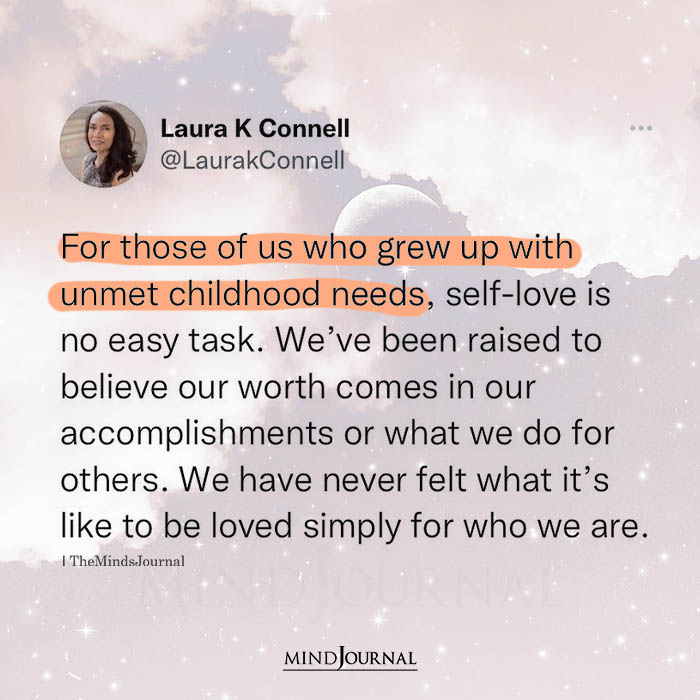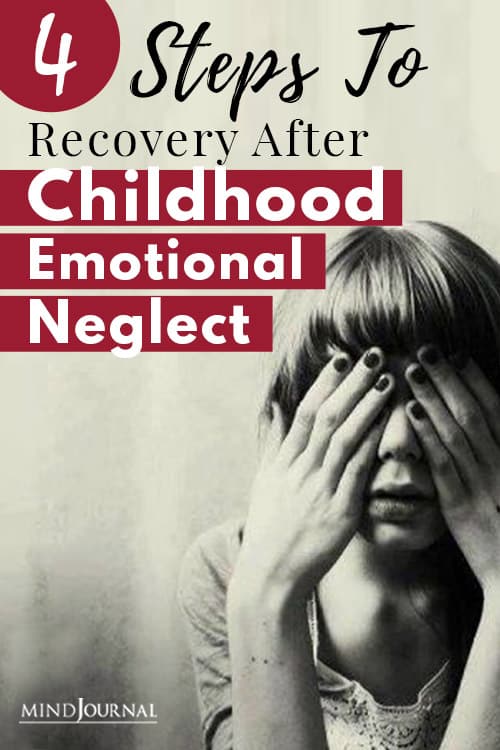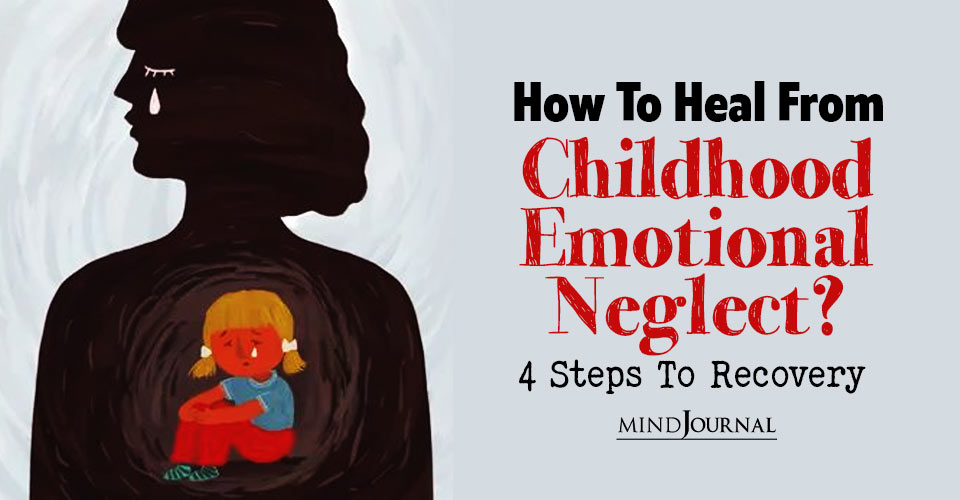The trauma of abuse or neglect affects a child in many ways, which can be felt throughout their life. For overcoming childhood emotional neglect below are steps to recovery.
However, the fact that the consequences are so far-reaching doesn’t mean that it’s not possible to recover. Healing from neglect and reconnecting with your emotions takes time, therapy, and a lot of work on your part, and so the sooner you start working on it the better.

How To Heal From Child Neglect? 4 Steps For Overcoming Childhood Emotional Neglect
1. Start a journal
Keeping a journal is an effective practice that often features in the treatment of mental health (University of Rochester Medical Center).
It can help you recover from emotional neglect too, but you’ll need to do it right to achieve positive results.
Dedicate your journal to reconnecting with your emotions and changing your perspective on the event’s long past. One of the biggest issues with CEN is that the trauma itself occurs in childhood.
Therefore, you memorize it from the perspective of a child who is often incapable of grasping the complexities of human behavior.
Write your journal entries in the first person from the point of view of the adult you are. Begin with the first memory that you have of painful emotional experiences.
Were you punished by your parents for showing emotion?
What exactly happened? What led to the event?
What would you prefer to have happened instead? How did you perceive the experience at the time?
How did it affect you? Does it affect you still? How exactly does it influence your relationships with other people today?
Go through each and every painful memory in this way, thus gradually unravelling the tangle of your repressed emotions and reconnecting with them.
You should go over your journal entries to reassess them with your adult mind. Do this a few days after writing and focus on how your perception of the event has changed.
Related: 8 Things You Can Relate To If You Were Emotionally Neglected As A Child
2. Treat depression first
CEN can cause depression, and if it has done so in your case you will need to seek treatment for both issues.
Luckily many of them correlate, so treating one should help your recovery from the other. For example, keeping a journal provides positive results in both cases.
However, suffering from a severe case of depression might make it impossible for you to even notice the impact of CEN upon your adult life, or diminish your motivation to recover from it.
Therefore depression treatment should take priority and you might require pharmaceutical intervention during this time.
In such a difficult situation you should see a mental health professional for assessment so they can develop a treatment plan which will address all of your issues.

3. Reach out to others for help
Everyone needs help sometimes and one of the greatest tragedies of CEN is that it often makes people unable to reach out for it.
Having your attempts turned down (and often belittled) in early childhood conditions you to avoid the action. But reaching out to other people and asking them for help directly is one of the most important steps for CEN recovery.
Start with something small, like asking friends or colleagues for assistance with a task. In some cases of course it might be easier, or just plain necessary, to reach out for help to professionals.
In such an instance a visit to a therapist can be your first step to learning how to ask for and accept help.
Related: This Is How Emotional Neglect Affects A Child
4. Improve your interpersonal skills through learning
Inability to connect with other people and maintain healthy relationships because you cannot manage your own emotions is a common consequence of emotional neglect in childhood.
To overcome it you will need to learn how to interact with people and to understand what healthy relationships actually are. Today it is possible to do this with the help of specialized books and articles available online.

There are also many seminars and workshops which focus on relationships and psychology. Attend these and explore better ways of expressing and accepting your emotions as you would any other subject.
Bear in mind that CEN is a major risk factor for developing psychopathology after the age of 15, especially if the parents in question are not only neglectful but also controlling.
Related: 4 Ways That Childhood Trauma Impacts Adults
This underlines the severity of the issue and should serve as a reminder to all caregivers to look out for the symptoms and to provide aid to the affected child recovering from childhood neglect.














Leave a Reply